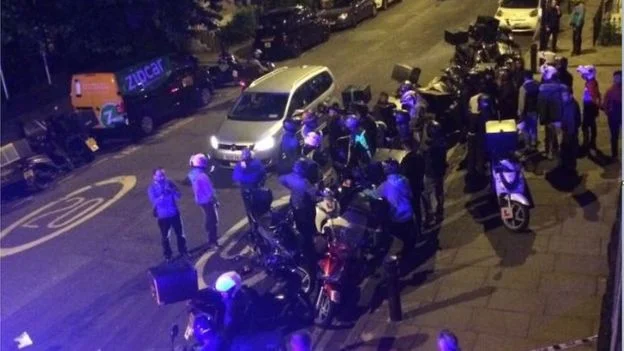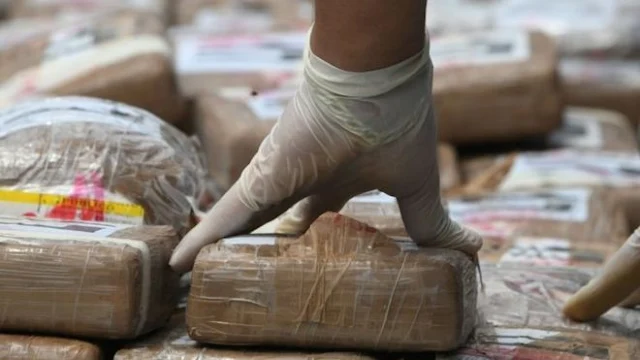Two men are now charged with the killings of four young men in an affluent Philadelphia suburb.
Cosmo DiNardo and Sean Kratz, both 20, each face murder charges as well as multiple counts of conspiracy, robbery and abuse of a corpse.
Police have confirmed all four men, missing since last week, were found buried on a farm belonging to Mr DiNardo's family.
Both men have confessed to investigators, according to officials.
The accused men - who told investigators they are cousins - allegedly sold the victims cannabis before killing them separately and burning their bodies on Mr DiNardo's family's farm, according to the Bucks County district attorney.
Investigators found the body of Dean Finocchiaro, 19, who disappeared last Friday, in a "common grave" on the 90-acre farm in suburban Philadelphia.
Mark Sturgis, 22, and Tom Meo, 21, also vanished on 7 July, and Jimi Tar Patrick, 19, went missing two days earlier.
On Thursday, a lawyer for Mr DiNardo told US media that his client had confessed to playing a role in the four murders after a plea deal was reached with prosecutors that would spare him the death penalty if convicted.
"I'm sorry," said a shackled Cosmo DiNardo as he left court on Thursday.
District Attorney Matthew Weintraub said on Friday that Mr DiNardo disclosed the location of the one victim's remains as part of the deal.
"Our boys get to go home to their families, which was always our first priority," Mr Weintraub said at a press conference announcing the criminal charges.
The three other bodies had already been discovered by police more than 12.5 ft (3.8m) beneath an old oil tank that had been converted into a "cooker".
Two firearms were also recovered from Solebury Township farm property.
According to a police affidavit, Mr DiNardo told investigators that he had arranged to sell $8,000 worth of cannabis to Mr Patrick, whom he had picked up from his home on 5 July.
After the two walked to a remote part of the property Mr DiNardo shot Mr Patrick with a .22 rifle, investigators say.
On 7 July he allegedly arranged another cannabis sale with Mr Finocchiaro.
He picked up Mr Kratz before driving to the second victim's home to transport him to the farm property, investigators say.
Before then, Mr DiNardo had given a .357 pistol to Mr Kratz.
Mr Kratz shot the man in the head, and Mr DiNardo fired another shot at him as he lay on the ground, police say.
Later that day, Mr DiNardo met Mr Meo and Mr Sturgis and had them follow him back to his family property in their car.
After both men were ambushed and shot, Mr DiNardo allegedly ran over Mr Meo with an earth-moving machine.
He then used the machine to transport the bodies of Mr Meo, Mr Sturgis, and Mr Finocchiaro into a metal tank, which he described to police as a "pig roaster", before pouring gasoline on them and setting the pit on fire.
The two men returned the next day to dig a hole with the earth-moving machine where they placed the men's bodies.




























